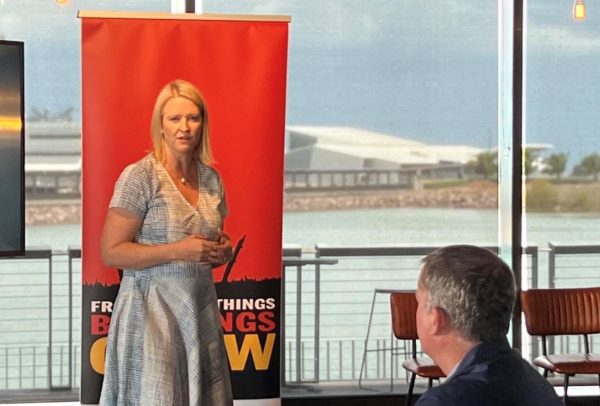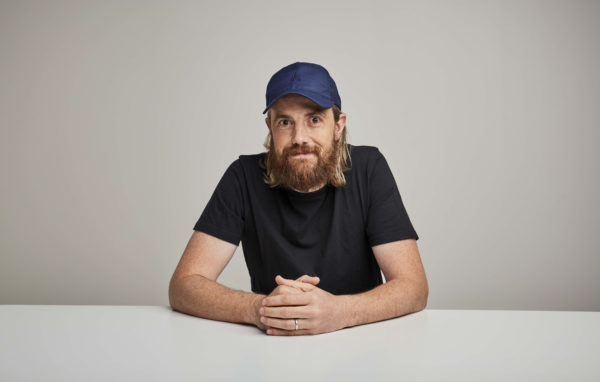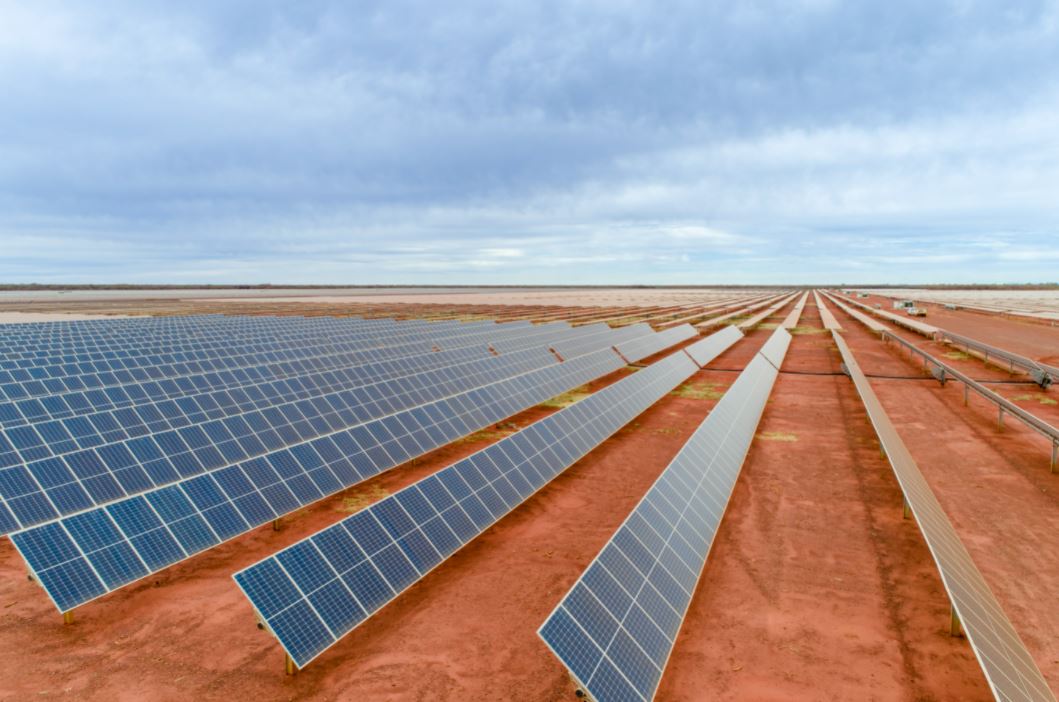Renewable energy startup Sun Cable, which is aiming to develop the world’s biggest intercontinental solar and energy storage project in Northern Australia, entered voluntary administration following an “absence of alignment” with the objectives of all shareholders.
The decision has cast a shadow over the future of the Australia-Asia PowerLink (AAPowerLink) project but Northern Territory (NT) Acting Chief Minister Nicole Manison said she remains confident the venture will go ahead.
Manison said she had been briefed about Sun Cable’s collapse shortly before it was announced publicly and was given “big assurances” about the future of the project which would export solar power from the Australian outback to Singapore via a submarine transmission link.
“They’re going through some shareholder issues and they are resolving them, and they are anticipating they are going to resolve them very swiftly and get on with business,” she said.
“They are confident they will be out of the voluntary administration process swiftly and that we can have confidence in the future of this fantastic project.”
Manison’s sentiments were echoed by Federal Energy Minister Chris Bowen who said he had been “speaking to very senior people in Sun Cable over the last 24 hours” and remained “very upbeat and excited” about the company’s future.
“This is primarily a commercial decision about structure and the way forward,” Bowen continued. “It doesn’t represent … any sort of lack of faith in the future of Sun Cable. It’s a commercial change of structure.”
“Sun Cable has enormous potential for Australia as a renewable energy export powerhouse.”

Image: Nicole Manison
The project proposal comprises building up to 20 GW of solar and 42 GWh of energy storage in northern Australia and the world’s longest undersea cable to deliver power to Singapore, and eventually, Indonesia. Sun Cable had hoped to begin construction in 2024 and was aiming to be providing power to Darwin in 2027 and Singapore in 2029.
Those ambitions are now in jeopardy with Sun Cable confirming FTI Consulting has been appointed to lead the voluntary administration process “after consensus on the future direction and funding structure of the company could not be achieved.”
A dispute about project financing between the company’s two main backers, Australian billionaires Mike Cannon-Brookes and Andrew Forrest, is understood to be behind the move.
Cannon-Brookes, who was appointed chairman of Sun Cable in October, said he is confident the project would go ahead and indicated he was continuing to support the venture
“I fully back this ambition and the team, and look forward to supporting the company’s next chapter,” he said in a company statement.

Image: Atlassian
The statement offered no comment from Forrest’s privately owned Squadron Energy, Sun Cable’s other major stakeholder.
Sun Cable said the administrators will now “work with the company’s management team and key stakeholders to determine appropriate next steps for the business.”
Sun Cable expects this process will “involve a process to seek expressions of interest for either a recapitalisation or sale of the business”, unlocking a “path forward for the company to access additional capital for continued development” of its marquee project.
Sun Cable founder and Chief Executive Officer David Griffin said the project “remains well placed for completion.”
“As we have progressed our work, the demand for delivering reliable, dispatchable 24/7 renewable energy in the NT and the region has risen materially,” he said. “Sun Cable looks forward to developing and operating the projects to meet this demand.”
This content is protected by copyright and may not be reused. If you want to cooperate with us and would like to reuse some of our content, please contact: editors@pv-magazine.com.









By submitting this form you agree to pv magazine using your data for the purposes of publishing your comment.
Your personal data will only be disclosed or otherwise transmitted to third parties for the purposes of spam filtering or if this is necessary for technical maintenance of the website. Any other transfer to third parties will not take place unless this is justified on the basis of applicable data protection regulations or if pv magazine is legally obliged to do so.
You may revoke this consent at any time with effect for the future, in which case your personal data will be deleted immediately. Otherwise, your data will be deleted if pv magazine has processed your request or the purpose of data storage is fulfilled.
Further information on data privacy can be found in our Data Protection Policy.